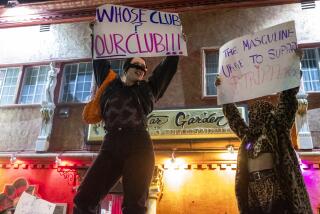Sweatshop Case May Grow
TOKYO — The U.S. District Court in Saipan signed an order this week opening the door to more potential plaintiffs in a lawsuit alleging widespread sweatshop abuses in the island’s garment trade.
“This is huge,” said Michael Rubin, a San Francisco-based attorney representing 972 Saipan factory workers from China, Vietnam, the Philippines, Bangladesh and other low-wage nations. “It’s unbelievable. This adds up to 20,000 additional plaintiffs.”
Defense attorneys immediately downplayed the decision. “We expected it,” said Bob O’Conner, who represents 11 factory owners in Saipan. “It’s a class-action suit, and it’s natural that all in the class should be notified.”
The ruling is the latest development in three related lawsuits filed in early 1999 against U.S. retailers and Saipan factory owners alleging work rule violations and seeking damages of up to $1 billion. The suits also charge U.S. retailers with knowingly buying and marketing products made under substandard conditions. Saipan is the capital of the Commonwealth of Northern Mariana Islands, an archipelago of 14 islands near Guam in the Pacific.
“We view Saipan as America’s sweatshop,” said Al Meyerhoff, a plaintiffs’ attorney.
Saipan is a very attractive location for foreign garment manufacturers because of its unique position. Under a 1976 covenant that made it part of U.S. territory, the island falls inside the U.S. customs zone but outside U.S. immigration rules.
This has prompted owners from mainland China, Hong Kong and elsewhere to set up more than 30 factories in Saipan and ship several hundred million dollars’ worth of garments to the U.S. annually without falling under U.S. import quotas. It also allows them to label their products “Made in the USA” and pay lower wages. Saipan’s hourly minimum wage is $3.05, compared with $5.15 in the United States.
The case is being watched closely on a number of fronts. U.S. labor unions and domestic garment makers view Saipan as a giant loophole that opens the door for worker exploitation even as it undermines their organizational and commercial interests.
The legal community is watching because the plaintiffs are using some novel arguments that, if successful, might establish a precedent for a wide range of other industries. These include use of federal racketeering statutes and a little-used 18th century human rights law as part of an effort to hold retailers responsible for the labor practices of their contractors.
And the industry is interested to see how U.S. retailers and Saipan factory owners react, given the expected entry of China into the World Trade Organization and proposed new global textile rules, both of which could make Saipan a far less attractive manufacturing center.
The decision signed by Judge Alex R. Munson on Tuesday was largely procedural. It requires Saipan factory owners to provide within 30 days the identities of current and past workers. Notices will be translated and distributed locally and abroad. Workers will have up to four months to join the class-action lawsuit.
Plaintiffs say Saipan factory owners have routinely violated U.S. labor law by, for instance, imposing work quotas that in effect indenture laborers.
They also allege that workers are forced to pay huge recruitment fees in their home countries, often from government-affiliated brokers, to get their jobs, in violation of the Fair Labor Standards Act.
About 13,000 guest workers labor in the garment industry, most from China. “There’s a lot of Chinese restaurants now,” said Cecilia Celes, a local government spokeswoman in Saipan. “I must admit a lot of them are pretty good.”
Attorneys for the factories say violations should be considered case by case, that all factory owners should not be lumped together. They say there’s no evidence of a quota system in the factories or that workers are pressured to work off the clock, although there may be individual violations, as in any U.S. state. And they maintain that workers are not intimidated or afraid to complain about their rights.
“Large and small groups of people make very visible protests in full view of the TV cameras without any fear of retaliation,” said Stephen Nutting, a Saipan-based attorney representing several factory owners.
A separate plaintiff suit names several major U.S. retailers that buy clothes made in Saipan. Eighteen retailers, including Calvin Klein Inc. and Tommy Hilfiger USA Inc., have settled for $8.5 million and agreed to adhere to an independent monitoring system. Those still fighting the allegations include J.C. Penney Co., Levi Strauss & Co., Target Corp., the Limited Inc. and Gap Inc.
More to Read
Inside the business of entertainment
The Wide Shot brings you news, analysis and insights on everything from streaming wars to production — and what it all means for the future.
You may occasionally receive promotional content from the Los Angeles Times.










